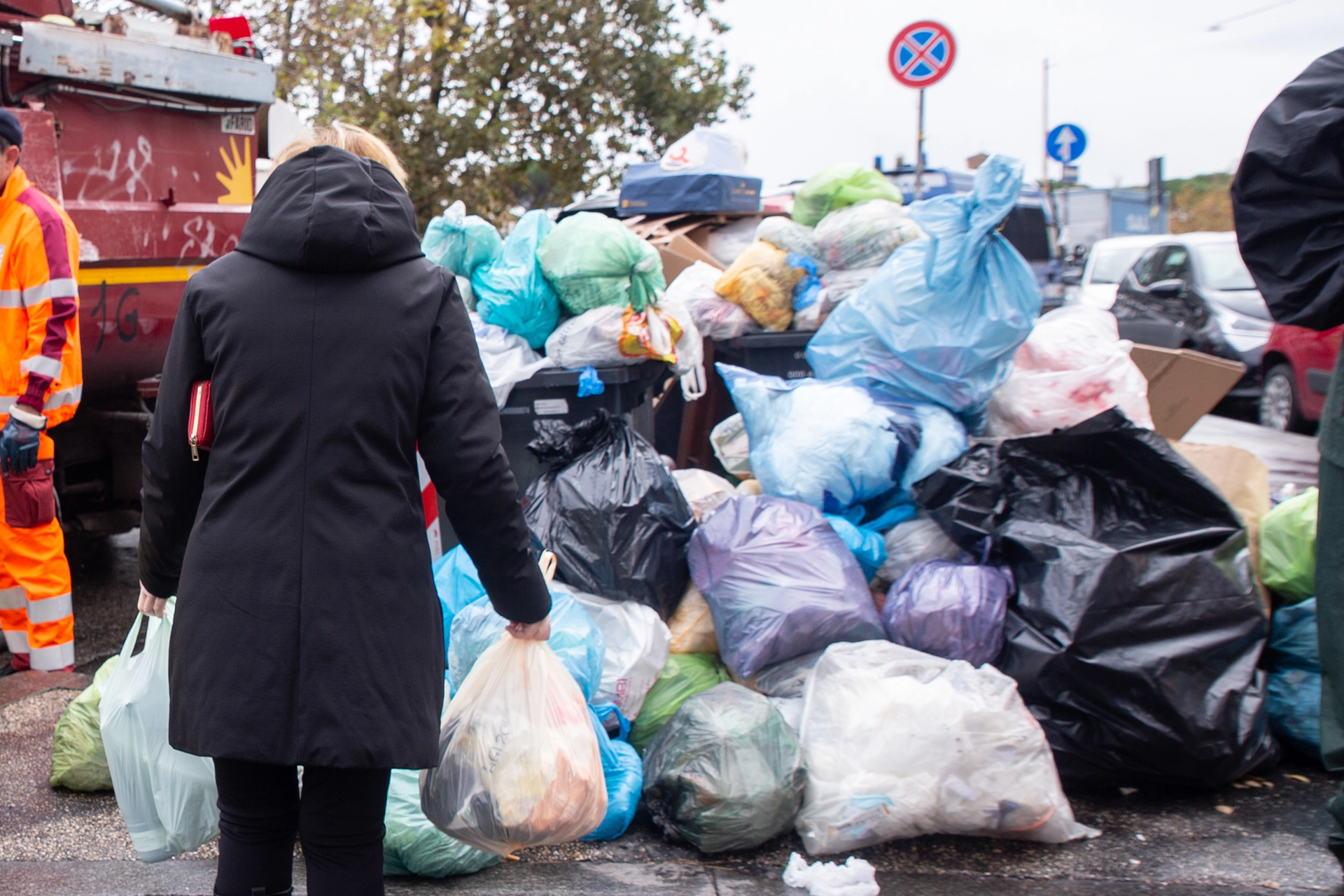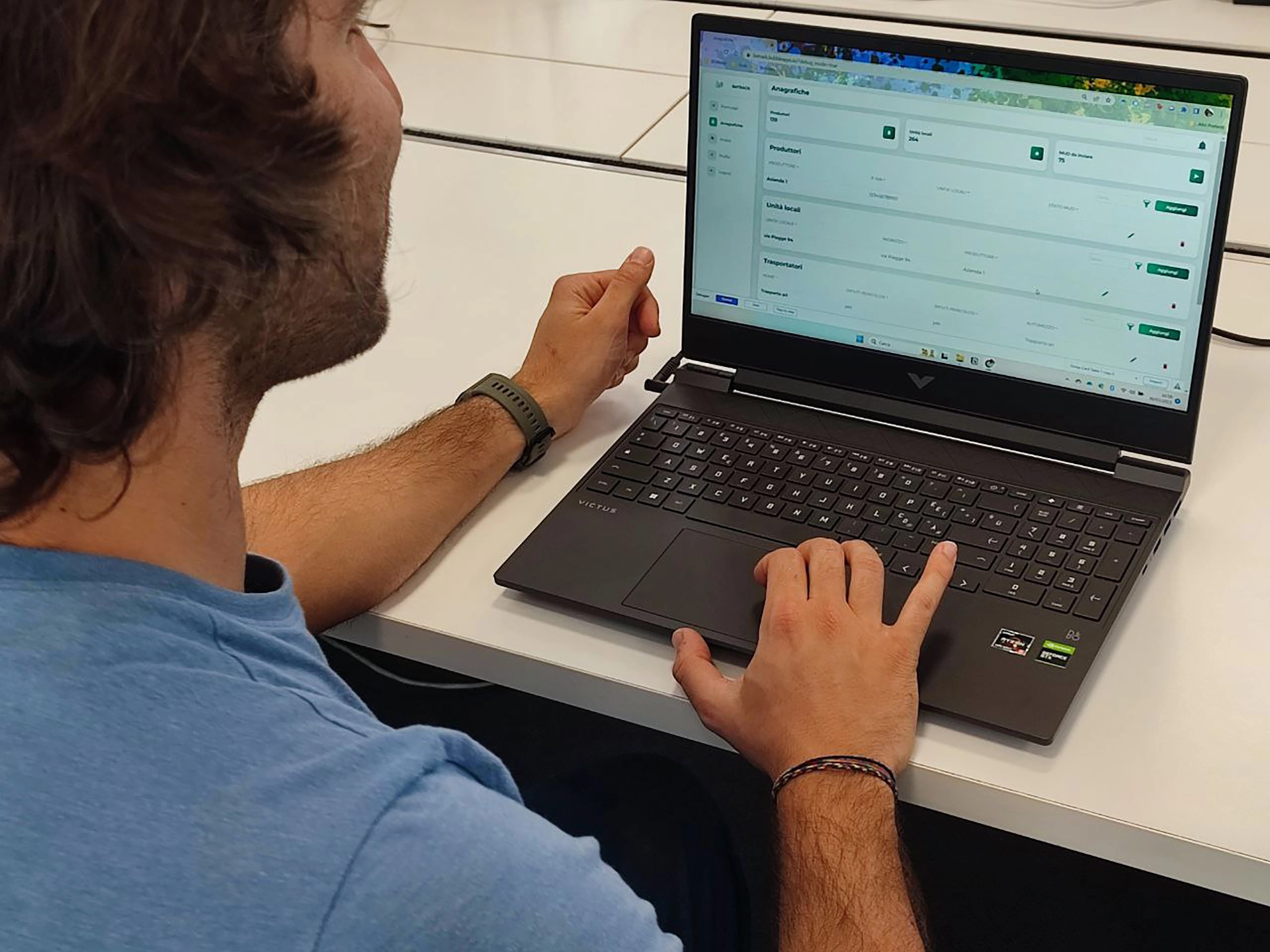https://www.lifegate.it/beaware-rifiuti-giorgia-leonardi
- |
- Waste management still represents a challenge today.
- To address the problem it is necessary to improve separate waste collection and generate less rubbish.
- Beaware provides municipalities and companies with solutions that optimize separate waste collection and promote virtuous behavior.
- Thanks to digital, the startup streamlines waste management, making it sustainable and meritocratic, with environmental benefits.
Production and waste management they still represent an enormous challenge today.As also reiterated by Ministry of the Environment and Energy Security, to improve the situation we need to act on several fronts.First of all, we need to generate less garbage and increase waste waste sorting, to reduce waste and the use of landfills and incinerators.A virtuous model that requires the collaboration of everyone and the right allies.There Beaware startups is among these:in fact, it provides innovative, efficient and sustainable solutions to manage the waste cycle.“Through IT tools and programs we simplify, digitize and automate the waste system, allowing public administrations and companies to monitor the entire process more effectively and improve its efficiency,” explains the co-founder Giorgia Leonardi.
Waste sorting:an imperfect system
The latest report Municipal waste of the Higher Institute for Environmental Protection and Research (Ispra) reveals that in 2021 in Italy the production of urban waste it rose by 2.3 percent, more than the GDP and household consumption.There waste sorting cannot keep up, especially in the southern regions:the national average stands at 64 percent, one percentage point below the target of 65 percent set by the legislation for 2012.Even more critical recycling which stops at 48.1 percent, compared to a target of 65 percent to be reached in 2035.As much as 19 percent of municipal waste still ends up in dump, with great environmental damage (waste pollutes) and economic damage (waste costs money).Although our country has made several steps forward compared to the past, therefore, there still remains a long way to go.
Beaware was born with the aim of optimize and automate waste management, in support of three principles promoted by European directive 2018/851/EC:
- the system of “door to door” collection which allows waste to be associated with whoever produced it and, consequently, makes citizens responsible;the downside is the higher costs for logistics management;
- there punctual rate (TP or Tarip), i.e. the meritocratic tax which is based on the quantity of waste actually generated by the individual family and therefore rewards virtuous behavior but, on the other hand, tends to reduce income for the municipalities;
- the principle reduce, reuse and recycle according to which, before recycling, it is good to try to reuse;and, before that, don't even consume.
Beaware intends to facilitate municipalities, companies and citizens in the adoption of these principles, providing solutions that make them more applicable and sustainable, also from an economic point of view.
Beware was born from the desire to solve the waste problem
This innovative startup was born from an idea of Giorgia Leonardi who, after a degree in energy engineering and a PhD in Theoretical and Applied Mechanics, feels he has to veer away from what seems like an already established path.“At a certain point in my career I realized that neither working as an engineer nor as a researcher would have allowed me to realize my dream:create solutions by transforming intuitions into real applications,” he explains.“Driven by the need to become more operational, I threw myself into the world of startups.Why specifically in the field of waste management?If at 15 I chose to be an engineer, at 18 I understood that my vocation was sustainability:being of Rome, a city symbol of the waste emergency, it was almost natural to take this direction."
First of all, Leonardi involves Daniele Dessi, researcher at the Institute of Marine Engineering of the National Research Council (Insean-Cnr), and the other two co-founders of the startup: Caterina Maggi, specializing in business and marketing, e Lorenzo Oliva, hardware and 3D printing expert.Initially the group thought of applying an alternative power system (the subject of Leonardi's doctoral thesis) to the sensors that measure the filling level of the bins and transmit the data remotely to optimize collection rounds.Then, however, the four noted that to improve the system, other needs must also be satisfied, such as tracking and quantifying waste production, improving the management and analysis of data for the punctual tariff, identifying the critical issues of the territory, perfecting logistics of door-to-door collection.The team thus develops a digitized and automated solution for municipalities and companies that want to embrace thecircular economy.

Digitalised and automated waste management
Beaware integrates four main elements:sensors, readers, digital control panel and citizen apps.
THE sensors, placed inside the bin, bin or bin, and i readers, positioned at the collection points, transmit data relating to the filling level and whether or not the containers themselves have been exposed to the municipality and the waste manager.Data which is then analyzed by artificial intelligence algorithms.Based on the situation detected by monitoring, it is possible to optimize in real time collection routes and frequencies, for example by avoiding for that day the places where the bins have not been displayed or where the bins are still empty;or, on the contrary, giving priority to overfilled containers, for more efficient emptying on demand.
The algorithms, based on the data collected in the medium and long term, they are also able to predict the waste production in the area and therefore build models.It's so possible remodulate collection routes and calendars in relation to the real needs of the area, acting on the critical issues of the territory and improving the performance indices.The system also carries out a census of the types of users, identifying the segments whose production is non-compliant or critical.
A digital control panel for municipalities and waste managers
Municipalities and waste managers they can keep the waste system under control using a digital control panel intuitively associated with a app.The appears on the main screen map of the territory in real time with the users, the filling levels of the bins and, in the case of door-to-door collection, whether exposure/filling has taken place or not.It is also possible to view the route that has already been planned and the one optimized based on the history of collections and exposure by citizens.In a specific screen you can consult the characteristics and critical issues by type of territory, user or route.
In addition, the system compiles the reports required by law and automatically calculates the punctual waste tariff (Tarip) for each user, lightening the workload of public employees and streamlining the related bureaucratic procedures.Based on the census of the types of users and the critical issues of the territory, they can be developed campaigns awareness-raising and ad hoc education.All this allows municipalities and managers to save time, resources and money, offering a more efficient service to citizens without additional financial outlays.

An app to become more aware of your household waste
Beaware also offers a app for citizens, with the aim of creating a collaborative relationship between residents and administration.Through this application, the user can learn about it history of its waste production, relating it to the average of the municipality, and understanding whether it is behaving in a virtuous manner.You can also access the history of your bill, touching the amount first-hand savings generated by Tarip and by the correct differentiation of waste, and trace the waste to the disposal plant and then to its new life after recycling.
The app also provides green advice:suggestions for reusing waste, tips for avoiding disposable materials, games to learn how to recycle.In the section “where do I throw it” you will find information on the correct disposal of waste and on any more sustainable alternatives.Citizens thus become more aware of the contribution they can provide to society in terms of sustainability and the cycles that waste completes, feeling more involved in the entire process.
Services for companies:tracking, bureaucracy, circular economy
Beaware also caters to companies, including those that generate special and hazardous waste.In fact, it offers programs that they trace automatically waste from production to disposal or recycling.Or again, they automate the compilation of the waste registers, in compliance with current legislation, facilitating the transition from paper forms to digital ones and eliminating the possibility of errors (and sanctions).These are tools that free companies from demanding and complex bureaucratic processes.Finally, the sensors applied to the containers allow the company to monitor waste in real time to implement an automated collection service.
These programs are also aimed at re-introducing waste into the circular economy market, such as by-products or donations.In the first case, the waste can be sold to other companies or startups who use it to create new products;examples of this are fertilizers obtained from food waste or sustainable clothing made from fabric waste.In the second case, the waste is given free of charge to non-profit organizations to which it can be useful.
Beaware in the words of the founder, Giorgia Leonardi
Due to the opportunities it offers in terms of correct waste management, and the positive consequences in terms of reducing pollution and CO2, Beaware is part of LifeGate Way, the Italian ecosystem that supports and connects naturally sustainable startups.She was also selected for the accelerator program Cloud for impact, conducted in collaboration with OVHcloud.“I am very proud of this milestone, as well as the others already achieved and those that await us.The world of startups is as exciting as it is difficult, full of satisfactions but also obstacles.Even more so for a female leader,” she says Giorgia Leonardi.
“I chose a sector considered 'for men' and I am often the only woman present at discussion tables, meetings and gatherings.But I don't see it as a limit, especially since we try to network with other colleagues, sharing paths, difficulties and advice", she continues.“I firmly believe that we women can forge a new kind of leadership, more welcoming and empathetic, in which the 'boss' is no longer a figure to be afraid of, but who can be trusted.Working in a startup can be very stressful:my job is also to listen, support and encourage my collaborators, with a view to positive reinforcement.The people who benefit first and foremost, but also productivity secondly."

